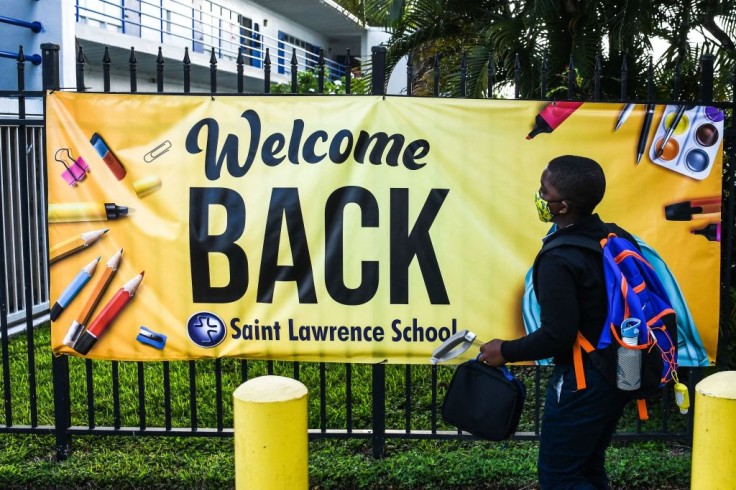
Police forces across the country have been sharing and updating social media posts telling parents not to post back-to-school photos of their children online without carefully excluding personal details.
The back-to-school photos trend often includes the child's name, school, teacher's name, or other details like favorite color or animal, giving predators too much information. The police said via KMOV that scrupulous individuals might use this information to lure kids into thinking that a stranger who knows about them may sound like a safe person.
Some back-to-school photos also have the front of the house or even the house number, which could attract potential burglars. Unfortunately, one in four people has set their social media profiles for the public; thus, anyone on the internet can easily see what they have posted.
Kids headed back to school? Show those First Day of School pics without giving out your child's personal info: #BackToSchoolSafety pic.twitter.com/MJ93GVOh9c
— St. Louis County PD (@stlcountypd) August 16, 2022
Oversharing gives "information seekers" what they need
Grandmother Lora Bridges said that she carefully decides what school photos need to be shared online since there are many "information seekers" who could steal someone's identity. Mom Destiny Huggins said she also makes sure not to make the mistake of giving predators the idea of where they can get to her kids.
Security agency manager Hank Schless said that a potential attacker might be tipped off and think the child's back-to-school photo details may be the parents' online password. Oversharing can give people who do not have the best intentions every idea to prey on unsuspecting families.
According to a survey from SecurityORG, about 75 percent of parents in the U.S. share many of their kid's photos, videos, and stories online, and 80 percent use their children's real names. Yet many of these parents do not know or are personally close and friendly to 80 percent of the people on their friends or followers list.
Thus, police officials warn that no matter their privacy setting, parents must keep their children's personal information to a bare minimum on the internet. If they want to share photos, they must ensure that those in their circle who can access the images are known to them.
Predators are already known to the victims
However, Laredo Police Department Office Joe Baeza believes that while these "stranger danger" tips are good, parents should also be told that most predators are known to the children or someone they have trusted, such as a caretaker, their scout leader, or even a family member.
Baeza said that he's all for anonymity on the internet, but there are also dangers to giving kids unlimited and unsupervised access online. He believes that parents shouldn't be too alarmed if they have already shared a back-to-school photo of their children.
For the officer, parents should be more concerned about their children's online activities because predators that lure their kids will only manipulate and victimize children once they have earned their trust.
"This is more far-reaching than the number of victims that have fallen to a parent with a chalkboard," the officer told SF Gate. He said that young kids with their own phones open the "gateway to many dangers."